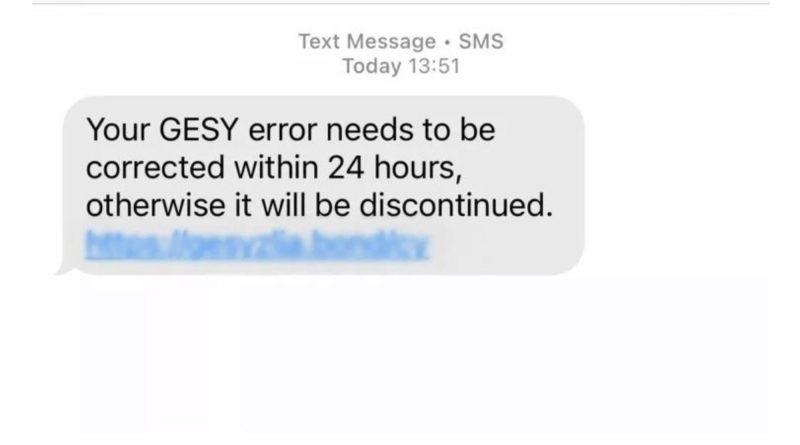Warning: Fake “GESY” Text Messages Circulating — HIO and Police Urge Public to Stay Alert
Authorities in Cyprus have issued urgent warnings about a new wave of fraudulent SMS messages pretending to come from GESY, the national health system. These messages are part of an organised phishing scam aiming to steal personal data and login credentials.
What We Know
1. HIO Issues Public Warning
The Health Insurance Organisation (HIO) reported that individuals have been receiving SMS messages claiming there is an issue with their GESY account and urging them to click a link to “update” their details. According to HIO, these messages are fake and do not come from GESY or any related authority.
- HIO stresses that they never request personal passwords, login credentials or payments via SMS.
- The public is urged to delete these messages immediately and avoid clicking on any links.
2. Police Cybercrime Unit Confirms Phishing Attempts
The Police Electronic Crime Subdivision has also received multiple complaints about similar fraudulent messages. These SMS claim there is a problem with the GESY online portal and direct users to “fix” the issue through a link, which in reality leads to a phishing website designed to steal personal information.
- Police advise the public not to reply, not to click on any links, and not to share any personal data.
- Anyone who may have entered their details into a suspicious website should immediately change their passwords to secure their account.
- The Police also recommend using different passwords for different online services to reduce the risk of multiple accounts being compromised.
Why This Scam Is Dangerous
This type of attack, known as smishing (phishing via SMS), is particularly harmful because:
- It uses the trusted name of an official public service (GESY).
- It creates a false sense of urgency to pressure individuals into clicking quickly.
- The fraudulent websites look very similar to official portals, making them difficult to recognise as fake.
How to Protect Yourself
To stay safe:
- Never click on links in unsolicited SMS messages.
- Never share passwords, login details, or sensitive information by text.
- If in doubt, visit the official GESY website directly through your browser.
- Report suspicious messages to the Police (Cybercrime Unit).
- If you think you clicked on a fraudulent link, change your passwords immediately and enable additional security measures where possible.

